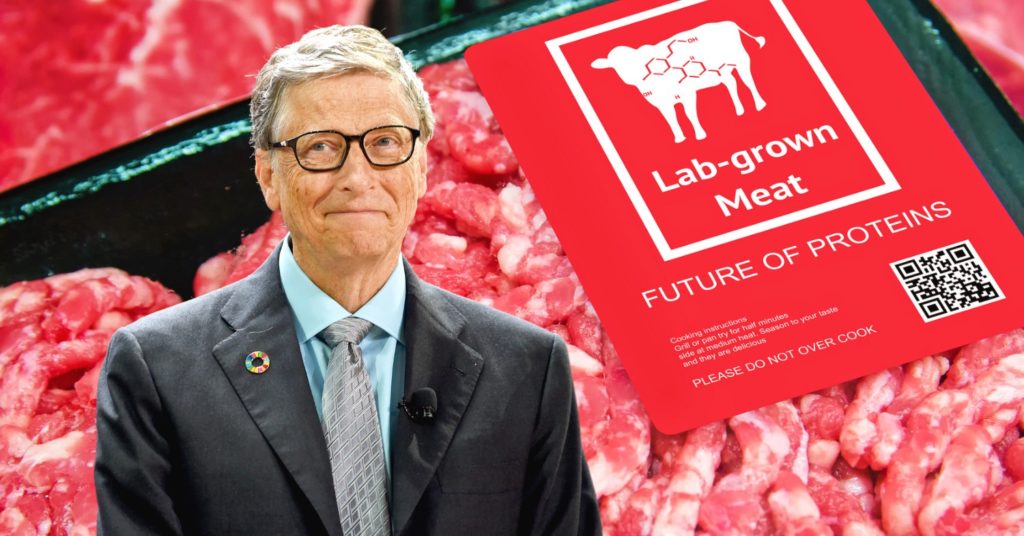Wealthy countries will need to swap animal products for synthetic beef in order to mitigate climate change, according to Bill Gates.
In an interview with MIT Technology Review to promote his new book, How to Avoid a Climate Disaster (2021), the billionaire tech entrepreneur, Microsoft co-founder, and Bill and Melinda Gates Foundation co-chair discussed what he believes it will take to cut greenhouse gas emissions (GHGs) effectively.
In the interview, Gates said that a combination of innovation and bold government policy could help tackle climate change and create a sustainable global food system. He also specifically highlighted Memphis Meats’ cellular agriculture and Impossible Foods and Beyond Meat’s vegan protein products as effective alternatives to eating animals.
“[They] have a road map, a quality road map and a cost road map, that makes them totally competitive,” he explained. Gates invested in both Impossible Foods and Beyond Meat and has previously discussed the huge potential of plant-based foods to tackle climate issues.
Synthetic beef and the problem with meat
When asked whether he thought plant-based and lab-grown meats could be a complete solution to the global protein problem, Gates highlighted that many low-income countries and communities frequently depend on livestock rearing for survival.
“I don’t think the poorest 80 countries will be eating synthetic meat,” he said. But added: “I do think all rich countries should move to 100% synthetic beef.”
“You can get used to the taste difference, and the claim is they’re going to make it taste even better over time,” continued Gates. He explained that, at least for beef products, plant-based foods are an essential part of the climate solution.
According to a comprehensive study carried out by Blue Horizon Corporation, the average kilo of conventionally farmed beef mince generates $7.26 in environmental costs, while the same quantity of plant-based meat generates just $0.48.
Cattle have, by far, the largest impact on the environment through resource consumption, methane production, and even human rights issues, compared to other animal products. And Gates has spoken out several times about the central role of beef and dairy in exacerbating climate change.
“If all the cattle in the world joined together to start their own country, they would be the third-largest emitter of greenhouse gases,” wrote Gates on Twitter.


